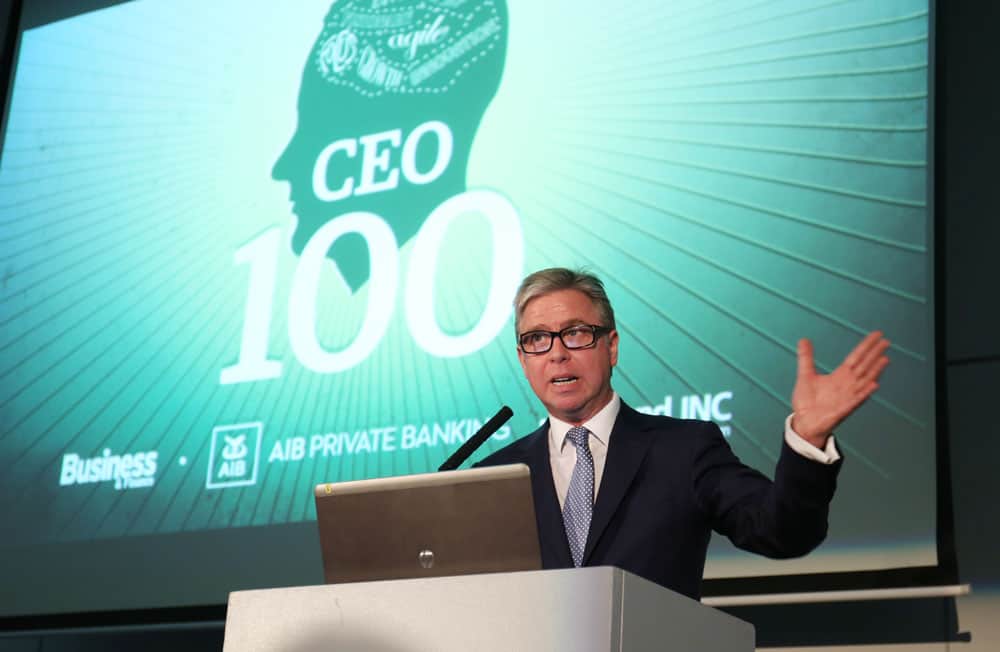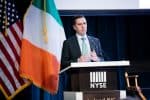Ian Hyland, CEO and publisher, Business & Finance
The leading CEOs in Ireland represent the widest possible variety of industries – and yet only one talking point dominates this year’s narrative. Ian Hyland, CEO and publisher, reflects.
As John Maxwell said, “A leader is one who knows the way, goes the way, and shows the way.” Last year’s CEO 100 came at a moment of transformation for several key industries in the Irish economy: Aer Lingus under newly appointed CEO Stephen Kavanagh had been taken over by IAG, and into the telecoms market stepped Virgin Media, as eircom became eir under Richard Moat’s adept steering.
This year, however, brought food for thought for CEOs in every industry without exception: Brexit. Many of the leaders here have spoken in public about the political talking point of the day, and all will have done so in private. Understandably, for an open European economy driven by exports, the tendency has been towards caution.
In agriculture, Aidan Cotter’s Bord Bia estimates that 40% of Irish food exporters expect Brexit to hit their exports. Ibec CEO Danny McCoy was one of several to campaign against Brexit, and has spoken about the need to adapt to the new reality in the wake of the referendum. Likewise, Greencore CEO Patrick Coveney argued against the UK leaving the EU – but rather cogently predicted the referendum outcome.
Understandably, for an open European economy driven by exports, the tendency has been towards caution
It is now standard to see references to sterling collapse and Brexit uncertainty in companies’ quarterly results. Those doing cross-border trade are perhaps at the coalface, with several CEOs on this year’s list either primarily based in Northern Ireland, or leading multinational organisations that would be interrupted by a mooted ‘hard border’ between North and South, with customs checkpoints and all the trappings of international travel. Enterprise Ireland CEO Julie Sinnamon has reacted by stepping up trade missions and encouraging Irish exporters.
Tourism is braced too, with Tourism Ireland CEO Niall Gibbons attempting to steady the ship and declare “business as usual” with a new €4m campaign in Britain while the long-term implications are teased out. Ryanair boss Michael O’Leary has been characteristically outspoken on the subject, saying he was “surprised and disappointed” by the result, that it would bring about recession, and that it might not even happen. The airline has already indicated that its investment will rebalance towards EU countries rather than the UK.
On the other hand, IDA Ireland CEO Martin Shanahan has been at the forefront of efforts to capitalise from any potential opportunities. The organisation argued for the UK to remain in – but now that it has voted to leave, Dublin in particular is mooted as a haven for financial services firms leaving the City of London, or at least require a base to maintain EU access.
Notwithstanding the advent of Brexit and the uncertainty that comes with it, where there is challenge there is also opportunity
If Brexit does happen, Ireland will be only English-speaking member state and Shanahan won’t be the only figure on the CEO 100 who tries to make hay.
Notwithstanding the advent of Brexit and the uncertainty that comes with it, where there is challenge there is also opportunity. In this vein, the past month saw Business & Finance open an additional office in London and launch Businessandfinance.co.uk. We take pride in our role in shaping stories of Irish business in the last half century and look forward to sharing and shaping the news in a new dawn for British business.
All in all, the long timeframe of Brexit – years, not months – means that adapting to the UK’s departure from the EU is now the new normal for Irish businesses and their CEOs. The fruits of their labours will be judged by next year’s CEO 100 – at which point the business environment could have changed just as radically once again.







